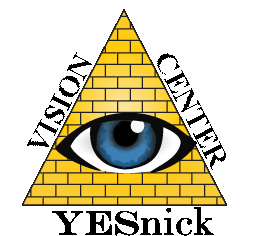
If you regularly drive at night, you may know that it presents unique challenges that can make accidents more likely. In fact, according to the National Safety Council, both fatal and nonfatal accidents peak between 4 PM and 4 AM, highlighting the risks associated with nighttime driving.
When discussing the primary cause of nighttime driving accidents, Dr. Yesnick explains, “nighttime driving is inherently challenging due to decreased visibility.” Dim lighting, bright headlights from oncoming traffic, and difficulty distinguishing objects at a distance make it harder for drivers to react quickly. Without proper vision correction and protective lenses, nighttime driving can become dangerous, especially for individuals who struggle with glare or blurry vision.
Fortunately, our Las Vegas eye care team at Yesnick Vision Center offers specialty night driving lenses that can help improve visual clarity, reduce glare, and enhance overall safety on the road.
Let’s learn more below.
How Night Driving Glasses Keep You Safe
Specialty night vision lenses are designed to help drivers navigate nighttime roads with greater confidence. These lenses address common visual challenges by:
- Reducing Headlight Glare: An anti-glare coating on night driving lenses minimizes distracting reflections and eliminates the streaky or blurred effect of oncoming headlights.
- Improving Distance Clarity: Up-to-date prescription night vision glasses ensure that road signs and distant objects remain sharp and easy to read.
- Assisting With Night Blindness: Many individuals struggle with poor night vision, making it difficult to see pedestrians, cyclists, or curves in the road. Specialty lenses enhance contrast and brightness to improve overall visibility.
Eye Conditions That Impact Night Vision
For some drivers, difficulty seeing at night isn’t just an inconvenience—it’s a sign of an underlying eye condition. Cataracts, glaucoma, and keratoconus can all significantly reduce night vision, making it harder to see clearly in low-light conditions. Addressing these issues early can help you stay safe on the road after dark.
Cataracts and Night Driving
Cataracts cause the eye’s natural lens to become cloudy, leading to blurred or hazy vision. At night, this clouding intensifies glare from oncoming headlights, making it difficult to see clearly. Halos around lights and increased sensitivity to brightness can make night driving uncomfortable and even dangerous. Those with cataracts may also struggle with contrast, making it harder to distinguish objects or read road signs.
Glaucoma and Night Driving
Glaucoma damages the optic nerve, gradually reducing peripheral (side) vision and leading to tunnel vision. This makes nighttime driving especially challenging, as low-light conditions already limit visibility. Drivers with glaucoma may have difficulty detecting movement in their peripheral vision, such as pedestrians or vehicles entering intersections. Additionally, glare from headlights can be overwhelming, further impairing vision.
Keratoconus and Night Driving
Keratoconus is a progressive eye condition that causes the cornea to thin and bulge into a cone shape, distorting vision. This distortion can make lights appear streaky or doubled, creating a significant challenge for night driving. Headlight glare and halos become more pronounced, making it difficult to focus on the road. Because traditional glasses may not fully correct vision in advanced cases, specialized contact lenses or other treatments can help improve visual clarity and enhance nighttime driving safety.
Regular eye exams are essential to detect these conditions early and determine the best treatment options. Whether it’s updating your prescription or addressing an eye health concern, proactive vision care plays a crucial role in safe nighttime driving.
Drive Safer with the Right Lenses
Driving at night doesn’t have to be a stressful experience. With the right pair of specialty night driving glasses, you can minimize glare, sharpen your vision, and navigate the roads more confidently. If you’ve been struggling with nighttime visibility, schedule an eye exam to explore customized lens solutions that improve your safety behind the wheel.


